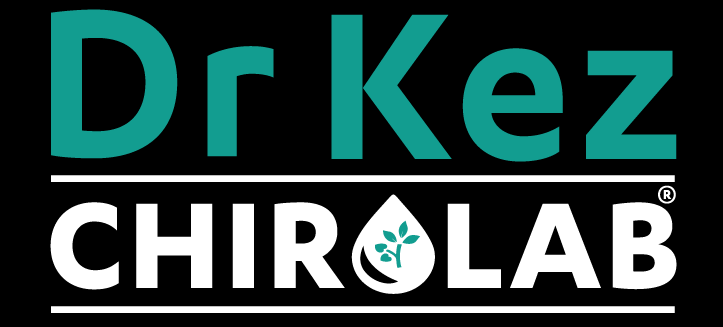
Preventative Care and Health Awareness from a slightly different perspective
Well hello there! At Dr Kez ChiroLab, we are all about helping you to heal at home from various ailments, but today we are going to take this to a whole new level and talk about preventative care and health awareness. You only get one body in this lifetime, so you better take care of it! That’s right, I’m talking about stretching, keeping your body moving, and taking steps to prevent health issues before they arise.
From a physical perspective

Now, let’s start with physical ailments, as this is often our focus. These can range from minor annoyances like muscle strains to more serious issues like chronic pain or arthritis. One way to prevent these types of conditions is by keeping your body active and flexible. Stretching before and after exercise is one of the best tips we can give you to maintaining healthy muscles and preventing injury. Something so simple, yet it is so frequently overlooked as people rush out of their gym class or session to get back to the busyness of their daily lives without taking a quick 15 minutes to roll or stretch the muscles they’ve just worked for the last 45 minutes to an hour. 🤦♀️ Even going for a walk with the dogs and not stretching, will, over time, lead to tight muscles that result in joint stiffness, pain and eventually damage. Trust me peeps, I see it in clinical practice all the time! So here’s the conundrum, you need to move your body to maintain strength and keep the blood flowing to your joints and muscles, but if you do that on its own, without stretching, it can lead to joint pain and potential injuries down the track. The very thing we are trying to avoid by writing this blog.
Perhaps you’re somebody that has such a busy work life that you struggle to make time for exercise at all. Chances are your job will have you stuck in similar positions that over time can lead to tight stiff muscles anyway. For example, what if you have a job that requires you to sit for long periods of time? Don’t worry, there are still things you can do to keep your body moving. Take a walk during your lunch break or do some simple stretches at your desk. Trust me, your future self will thank you for it.
What about if I don’t want to go to the gym?

Keeping your body moving doesn’t just have to be limited to exercise or stretching. In fact, incorporating movement into your daily activities is a great way to keep your body active and prevent health issues. Take cleaning the house as an example. There is so much movement that takes place when cleaning the house, it is actually a very well-rounded physical activity. Did you know that activities like vacuuming, sweeping, and mopping can also burn a significant amount of calories? Maintaining a healthy weight is also another great way to prevent health issues. Plus, using a vacuum cleaner, broom or mop, also engages different muscle groups in your body. So, the next time you’re cleaning the house, turn up the music and dance your way through the chores. You’ll be burning calories and getting your heart rate up without even realising it!
I know that changing the sheets is one of the least favoured jobs in our house (given we’ve got 8 beds you can understand why). Having said that, changing the bed sheets actually can provide a surprisingly good workout. Lifting and carrying the sheets, bending over to tuck them in, and stretching to reach the corners can all engage different muscle groups. So, instead of dreading this chore, embrace it as a mini workout.
And it’s not just household chores that can provide health benefits. Anytime you’re out running errands, try parking farther away from the entrance to get in some extra steps. Take the stairs instead of the elevator whenever possible. Em gets a bicep workout whenever she goes to Woolies as she has to carry so many green shopping bags full of groceries from the car to the house. It all adds up!!! Also if you’re stuck sitting for long periods of time, take breaks to stand up and stretch your legs. Toilet breaks are a great opportunity to stretch our hip flexors which have been shortened in the sitting position. All of a sudden having your desk far away from the printer, or the toilets on a different level at work can be viewed as a positive not a negative…..extra steps, better health!
The bottom line is that movement is crucial to maintaining a healthy body, and there are plenty of opportunities to incorporate it into your daily routine. So, whether you’re cleaning the house, changing the sheets, or running errands, make sure to keep your body moving. But remember, although incorporating movement into daily activities can provide health benefits, it’s important to also engage in regular exercise and stretching to maintain flexibility and prevent injury.
You are what you eat

Another important aspect of preventative care is maintaining a healthy diet. This means eating plenty of fruits, vegetables, lean proteins, and whole grains. Avoid processed foods and excessive amounts of sugar and salt. By eating a balanced diet, you can prevent a wide range of health conditions such as heart disease, diabetes, and obesity. Start to think of eating as an opportunity to fuel your body for peak performance. We can’t be upset at our body for being tired and sluggish if we feed it nutrient deficient food. Likewise, we can’t be surprised that our body aches and ailments take longer than they should to heal if we keep consuming preserved and sugary foods that inflame our body all over. For more information on how food can affect the inflammation in your body read our blog here.
Preventing Heart disease
Speaking of heart disease, did you know that cardiovascular disease is the leading cause of death worldwide? That’s right, and many cases of heart disease can be prevented through lifestyle changes. This includes exercising regularly, maintaining a healthy weight, and not smoking. There is also evidence to suggest that poor sleep and chronic stress can increase the risk of developing heart disease. Lack of sleep and chronic stress can both contribute to high blood pressure, which is a major risk factor for heart disease. In addition to the physical effects of poor sleep and stress on the heart, these factors can also lead to the unhealthy behaviours mentioned above, overeating, lack of physical activity, and smoking, which can further increase the risk of heart disease. A dangerous, viscous cycle!
Reducing stress and getting quality sleep are not just important for maintaining heart health, they are crucial components of all aspects of preventative care and health awareness. Chronic stress and lack of sleep can have a negative impact on your physical and mental health, so it’s important to prioritise these aspects of your life regardless.

Reducing Stress

Let’s start with stress. While some stress is normal and even beneficial, chronic stress can lead to a range of health issues such as high blood pressure, anxiety, and depression. One way to reduce stress is through mindfulness practices such as meditation, deep breathing, and yoga. These practices can help you focus on the present moment, calm your mind, and reduce feelings of stress and anxiety. We recommend doing a 20 minute healing meditation on your acupressure mat at least twice weekly to not only bring your mind into a state of calm, but the endorphins released by the mat also help to reduce the stress hormones that inevitably make their way into our blood stream. If you find yourself in a stressful stage in your life, do this practice more regularly.
Another way to reduce stress is by engaging in activities that you enjoy. Whether it’s reading a book, taking a walk in nature, or spending time with friends and family, taking time for yourself and doing things that make you happy can help reduce stress and improve your mental health.
Getting Quality Sleep

Now, let’s talk about sleep. Getting quality sleep is essential for your physical and mental health. During sleep, your body repairs and rejuvenates itself, and lack of sleep can lead to a range of health issues such as fatigue, weakened immune system, and even weight gain.
To improve your sleep quality, it’s important to establish a consistent sleep schedule and create a relaxing bedtime routine. This can include things like taking a warm bath, reading a book, or practicing relaxation techniques. It’s also important to create a sleep-conducive environment by keeping your bedroom cool, dark, and quiet. For more tips on getting quality sleep check out this blog.
Mental Health
Now, let’s talk about mental health. Just as it’s important to take care of your physical health, it’s also crucial to prioritise your mental health. This includes things like getting enough sleep (as mentioned above), practicing mindfulness, and seeking help if you’re struggling with anxiety or depression. If you’re feeling overwhelmed, take a step back and prioritise self-care. This can include things like taking a warm bath, reading a good book, or practicing yoga. By taking time to care for your mental health, you’ll be better equipped to handle the challenges that life throws your way.
Although we are all about empowering people to take control of their own health and to help themselves to heal at home, when conditions aren't improving please ensure that you seek help from a qualified professional. Likewise, when it comes to prevention, regular health check-ups with your doctor can make the world of difference in the diagnosis and treatment of many conditions. Early detection can improve outcomes and healing time astronomically, leading to significantly better outcomes. This includes things like mammograms, colonoscopies, and regular blood work.
Are their other options outside of healing from home that can help prevent ill health?
When it comes to preventative health care, I can’t go past the full spectrum infrared sauna. Infrared saunas are a type of sauna that uses infrared light to heat the body from the inside, rather than heating the air around it like traditional saunas. Proponents of infrared saunas often talk about the multitude of health benefits, including detoxification, improved circulation, pain relief, and relaxation. Some studies have suggested that regular infrared sauna use can help lower blood pressure, improve cardiovascular health, and reduce the risk of certain chronic conditions like heart disease and stroke. Additionally, the relaxation and stress relief provided by infrared saunas may have a positive impact on mental health and wellbeing, which is an important aspect of overall health and disease prevention. The full spectrum infrared saunas at Life Balance Adjustments have a program specifically designed for cardiovascular health as well as other programs such as relaxation, skin health, anti-aging, pain and inflammation and detoxification. Imagine helping the health of your heart by simply sitting in a sauna, it doesn’t get any easier than that! For booking please click here.
In summary, preventative care and health awareness encompass many different aspects of our lives, including physical activity, healthy eating, regular check-ups, stress reduction, and quality sleep. By prioritising these areas and taking proactive steps towards preventing health issues before they arise can save yourself a lot of time, money, and pain down the road. So, get up, stretch it out or have a sit in an infrared sauna, and start making your health a priority. Your body (and mind) will thank you for it! Let’s lead the healthiest, happiest lives possible. And always remember to seek help from a qualified professional when needed.







